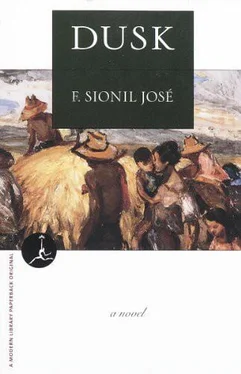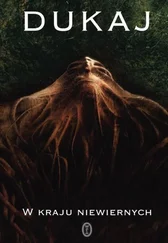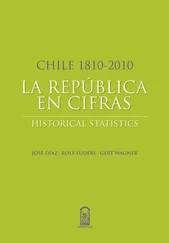As these thoughts came, the image of Dalin — her quiet face, her long tresses — swooped into his mind. He dreamed of that day in another country when he would finally be strong and able to clear and plant, and after the first harvest, he would ask her. His name would then be written down in the registry— Registro de Casamientos —as he himself had written so many times in Cabugaw. Now they flitted across his mind, the pages with carefully written names, among them, Salvador. His father knew his grandfather — but that was as far as Ba-ac could go. It was now too late, but he should have looked it up in the ledgers when he was still in Cabugaw — found out who they were, for there had been Salvadors in Po-on before them, and in that dim past, they must have suffered, too, as all Ilokanos had done. Why did they take punishment without question? Did they really believe that man was made to suffer so that he could receive the final reward that only God could bestow? Be patient, his mother had dinned into his cars. And be industrious. Blessed are the meek, for they shall inherit the kingdom of God. And the meek are many and nameless.
They now traveled in the daytime, following the dusty road, just like the other carts leaving the Ilokos, carrying settlers like themselves, looking for land, free land. Land! What a melancholy and elusive word!
Sometimes they would come across a telegraph pole that had leaned and the wires were within reach. If there was no one to witness it, Ba-ac lashed at the wires with his bolo till they were sundered. “Don’t tell them about us,” he would say hoarsely.
In many places, the road was nothing but a swath of dust which swirled up like a funnel when the day was hot. These funnels sometimes loomed ahead, and once they were caught in one and could see nothing as dust enveloped them, and with it, this hot wind that seemed to suck everything. What a sea of mud the road would be in the rainy season! In some places, however, were cobbles of brick, but these only covered brief stretches of the road. Before the approaches of a town, they would head toward the nearest village instead to spend the night there, using the wells and the stoves of kindly Ilokanos.
It finally rained a week after they had raced down that hilltop. Every afternoon, the clouds had gathered and darkened but no rain fell. Now, gusts of wind tore down upon them and the clouds that had thickened on the rim of the sky loomed — a black and massive wave about to engulf them. Raindrops, big as pebbles, thudded on the dust and shook the grass. Then it came in slanting sheets, covering everything, and they could no longer see what lay ahead, the shapes of trees, the paths that now turned into rivulets of brown.
They had stopped to put up the detached palm frond doors of the carts, but the wind lashed against the doors, against the walls of the carts, and sent the rain through the tiny slits of bamboo siding, through cracks in the disheveled roofs. The children asked if they could go outside and bathe, and were quickly given permission.
It was May at last, and the first rain had a special magic. They must bathe in it, wash their clothes in it, drink it. Mayang laid her pots outside till they were full, and after the children had bathed, the older folk went out, too. Istak went out without his shirt, his ribs protruding. An-no and Bit-tik were with the girls who had joined them and he could see them through the rain, laughing and joking. Maybe An-no had already forgotten Dalin.
Dalin was close by, bathing the bull, scrubbing its white hide. She was wet and her hair came down behind her in dripping strands. Her wet blouse clung to her body and in the rain he saw her breasts, the nipples dark and distinct. She turned to him briefly and smiled.
He gazed at her, at the skirt that clung to her legs. He admired her, seeing for the first time the fullness of her body. A pleasant sensation coursed through him — desire, just as he had once desired the daughters of Capitán Berong when they would bend before him so that he could see their breasts. Then they would face him while the blood rushed to his face, smile at him, and he would stammer, unable to continue with his teaching.
But the daughters of Capitán Berong were beyond the compass of his imagination. He was from Po-on and they were fair of skin, unreachable; the men who could claim them would not be brown like him.
Dalin was brown.
They stopped that night in a mango grove close to the road and a village where the women went to cook. The firewood that they had strapped behind the carts was drenched and would not kindle. It stopped raining shortly after sunset and the smell of earth blessed with rain, the leaves still dripping, was about them. The whole world was alive and breathing.
They gathered the carts in a semicircle and put the cambaos and the bull within the are, and while the men talked the women prepared their meal or hung their wet clothes on the maguey twine which they strung from cart to cart. They cooked rice and vegetables for the next day’s breakfast as well so that all they would have to cook in the morning would be the coffee to warm their stomachs before they started out again. They had one more mountain to cross and the trails through the forest would be tortuous and slippery, but thank God, they were now free from the land of the Bagos.
Earlier in the evening, An-no had found a kutibeng in one of the carts and was strumming it. Ever since Dalin had taken Istak into her cart, An-no must have concluded it was no longer possible for him to possess her. It was just as well, for there was this girl Orang. She had a younger sister, but Orang was more mature, although flat-chested, and her eyes were always bright. Now, in the dark, Istak could hear his younger brother singing an old ballad, and the words were meant for Orang.
Since his recovery, Istak no longer slept in the cart but beneath it. Tonight, however, the ground was wet and Dalin told him to come up. He had demurred. “They are already saying many things about us, how I have been taking care of you,” she said. “Would it matter if we slept together now?”
He did not go to sleep at once. She sat before the cart looking out into the night, listening to the laughter in some of the carts, the mooing of carabaos . Cicadas called from the black shroud of trees around them, and beyond the shroud, in the open field, fireflies winked at them. The cooking fires of the houses beyond the grass kept them company as well.
It was cool, not like in the past when he was forced to take off his shirt, and this he had done with great difficulty because the wound, though healed, did not allow him easy movement. He needed a blanket now. Dalin faced him and their legs touched.
“Soon you will get back all the strength that you lost. I am happy,” she said.
“You will really go with us wherever we go?”
She did not speak; he could not see her eyes but knew she was looking at him. Then she turned and lay down beside him. She had turned on her side and so did he.
“I will decide when we get there,” she said.
“Suppose I asked you to stay with me …”
“You are not a farmer,” she said quietly. “I knew that from the very beginning. I do not think you can stay long on a farm. Not that you will not work.”
“I cannot be anything now but a farmer.”
“You can teach. You know many things we don’t know.”
“There is no place for people like us except the farm, Dalin,” he said. “Or the road, or the sea.”
She asked him how his arm was. He lay on his back and extended it to her. He could move it but the shoulder reminded him of a greater pain each time he lifted his arm.
She felt the scar with her hand. He liked the feel of that hand on his shoulder and impulsively, he turned and held it.
Читать дальше












